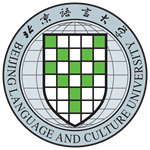📚About the Program
The Department of Linguistics maintains strong links between teaching and research, with emphasis on data-driven, theoretically informed inquiry into aboriginal languages, language variation and change, and language acquisition. Our graduate programs provide a strong foundation in core theoretical areas (phonology, syntax, morphology, etc.) and build from there. Research expertise and supervision are offered in first and second language acquisition, speech disorders as well as acoustic and articulatory phonetics, from both theoretical and experimental perspectives.
Languages of specialization include aboriginal languages of eastern Canada (Algonquian, Inuktitut, Iroquoian), as well as local varieties of English and French and their British/European origins. The department is home to several unique research projects, which students are encouraged to consider joining. The Chisasibi Child Language Acquisition Study (CCLAS), focuses on how Cree is acquired as a first language. Allophony in Newfoundland English, a project focusing on speech perception and production across varieties of Newfoundland English, studies the local effects of urbanization and rapid social change. MUSL (Memorial University Sociolinguistics Laboratory) provides information about current research projects on language variation and the relationships between language and society. Three dedicated laboratories (MUSL, the Aboriginal Languages Research Laboratory and the Speech Sciences and Language Acquisition Laboratory provides space and resources needed to conduct cutting-edge research in the areas in which we offer expertise.
Languages taught within the Linguistics Department, and on which the department particularly encourages graduate research, include Algonquian (Montagnais/Naskapi, Cree), Inuktitut and Iroquoian (Cayuga). Memorial also offers a full range of courses in English, French, German, Russian and Spanish. Courses in Irish and Japanese are offered within the Linguistics Department.
Show less











